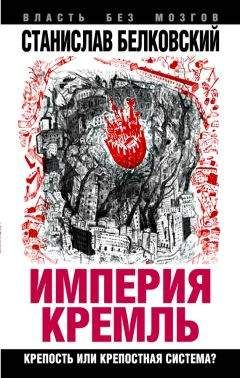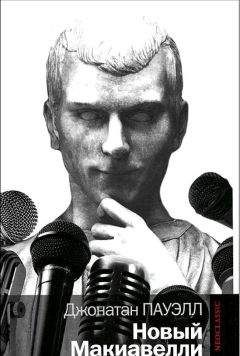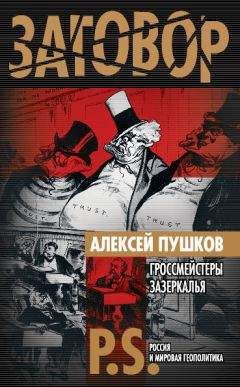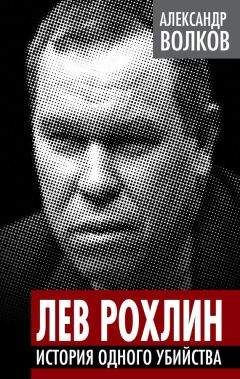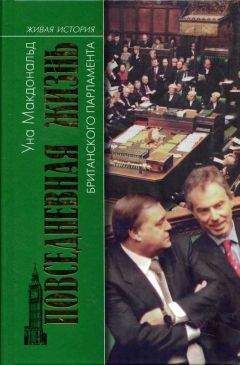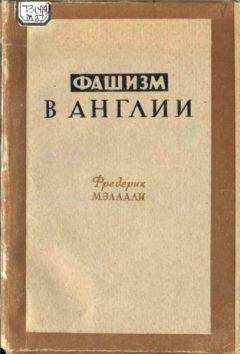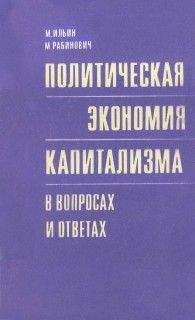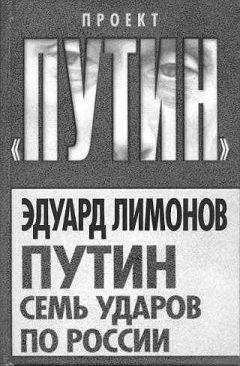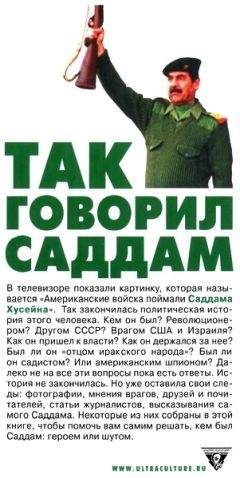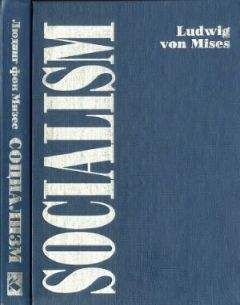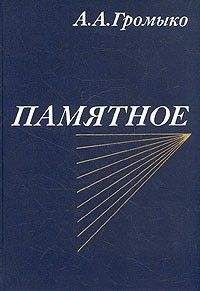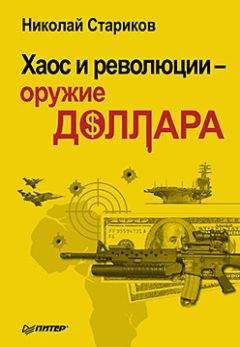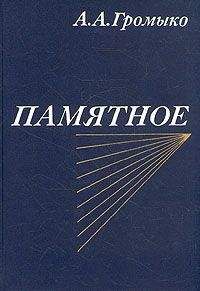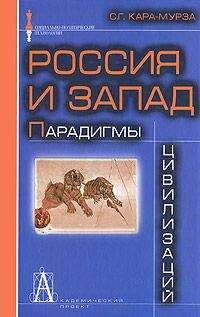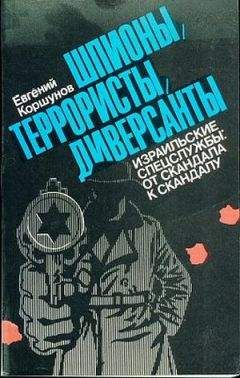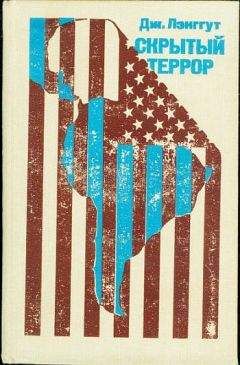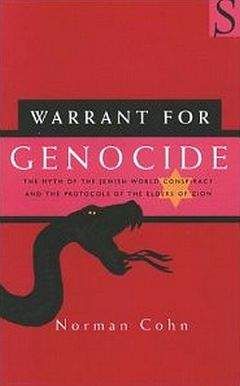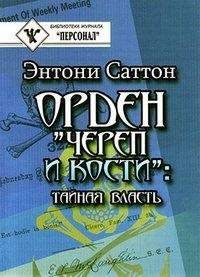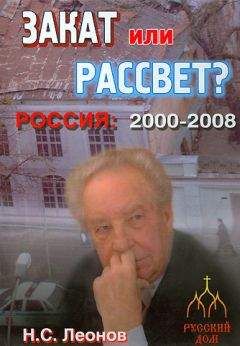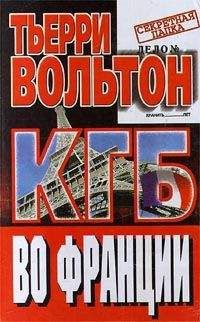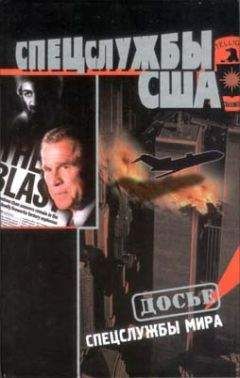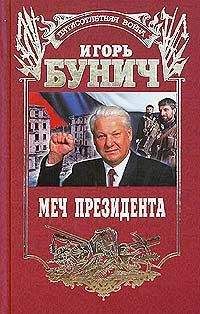Филлип Найтли - Шпионы XX века
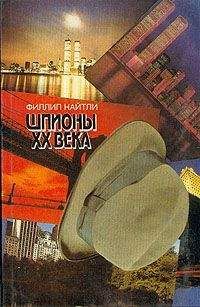
Скачивание начинается... Если скачивание не началось автоматически, пожалуйста нажмите на эту ссылку.
Жалоба
Напишите нам, и мы в срочном порядке примем меры.
Описание книги "Шпионы XX века"
Описание и краткое содержание "Шпионы XX века" читать бесплатно онлайн.
Неизвестные похождения известных асов шпионажа, новые для нас имена крупнейших шпионов (таких, как знаменитый писатель Сомерсет Моэм), оригинальные версии тайных операций (например, дела Пеньковского) – все это читатель найдет в книге английского публициста Филлипа Найтли, вышедшей в Великобритании под названием «Вторая древнейшая профессия». Книга мгновенно стала бестселлером, переведена во многих странах. Автору, пожалуй, впервые удалось объемно показать, насколько это возможно, систему и особенности деятельности ведущих спецслужб – СИС, ЦРУ, КГБ. При этом суждения Найтли отличаются своеобразием, далеко не всегда совпадают со взглядами других исследователей, а по манере изложения и вовсе оригинальны. Написанная увлекательно, местами иронично, книга читается с интересом не меньшим, чем хороший детективный роман.
(17) Walker in interview with Page, Leitch and Knightley, 1967.
(18) Hinsley, British Intelligence, vol. 1, pp. 57 – 8.
(19) ibid., p. 83.
(20) Wesley K. Wark, 'British Intelligence on the German Air Force and Aircraft Industry, 1933 – 1939', Historical Journal, vol. 25, no. 3(1982), p. 640.
(21) Wark, 'British Intelligence', pp. 636 – 8. Christie's informant is identified as Ritter in C Andrew and D. Dilks (eds). The Missing Dimension (London: Macmillan, 1984), p. 123.
(22) Barton Whaley, 'Covert Rearmament in Germany 1919 – 1939: Deception and Misperception', Journal of Strategic Studies, part 5 (March 1982), pp. 3 – 39.
(23) Hinsley, British Intelligence, vol. 1, pp. 49, 80.
(24) ibid., pp. 46, 76 – 7.
Глава 5(1) Heinz Hohne, Canaris (London: Seeker & Warburg, 1979), p. 161.
(2) Gert Buchheit, Der Deutsche Geheimdienst. Geschichte der militarischen Abwehr (Munich: List, 1966), p. 175.
(3) Nigel West, M15. British Security Service Operations 1909 – 1945 (London: The Bodley Head, 1981), pp. 92 – 104.
(4) The de Rop – Winterbotham relationship is described by Winterbotham himself in Secret and Personal (London: Kimber, 1969).
(5) Ladislas Farago, The Game of the Foxes (London: Hodder & Stoughton, 1972), p. 86.
(6) David Kahn, Hitler's Spies (New York: Macmillan, 1978), p. 63.
(7) Farago, Foxes, p. 36.
(8) Thomas H. Etzold, 'The (F)utility Factor: German Information Gathering in the United States, 1933 – 1941', Military Affairs, vol. 39, no. 2 (1975), p. 78.
(9) ibid., p. 79.
(10) ibid.
(11) ibid.
(12) ibid., p. 80.
(13) Manfred Jonas, 'Prophet without Honour: Hans Heinrich Dieckhoffs Reports from Washington', Mid-America, vol. 47 (July 1965), pp. 222 – 33.
(14) Page, Leitch and Knightley, Philby, p. 46.
(15) ibid., p. 61.
(16) Philby, My Silent War, p. xix.
Глава 6(1) R. J. Jeffreys-Jones, 'History on Trial: a Critique of the CIA and its Critics', p. 6. Paper delivered at the 9th Annual Meeting of the Society for Historians of American Foreign Relations, Catholic University of America, Washington DC, 4 – 6 August 1983.
(2) Andrew, 'Governments and Secret Services', p. 181.
(3) Farago, Foxes, dustjacket.
(4) Corey Ford, Donovan of OSS (Boston, Mass.: Little, Brown, 1970), p. 112.
(5) Oldfield in interview with author, 13 July 1979 .
(6) Malcolm Muggeridge. Chronicles of Wasted Time. II: The Infernal Grove (London: Collins, 1973), p. 149.
(7) Hinsley, British Intelligence, vol. 1, p. 91.
(8) Page, Leitch and Knightley, Philby, p. 121.
(9) 'The Profession of Intelligence', part 2, BBC Radio 4, 12 March 1980 .
(10) West, M16. p. 109.
(11) De Courcey in letter to author, 16 May 1981 .
(12) West, M16. p. 137.
(13) Interview with Peter Oilman, 23 March 1978 , unpublished.
(14) PRO, CAB/66/9/WP(40)244, 4 July 1940 , 'Imminence of a German Invasion of Great Britain '.
(15) JIC(40)376, 12 November 1940, quoted in Hinsley, British Intelligence, vol. 1, p. 295.
(16) Private letter to author, 7 September 1967 .
(17) West, M16, p. 109.
(18) Philby, My Silent War, p. 4.
(19) Hinsley, British Intelligence, vol. 1, p. 278.
(20) Michael Elliot-Bateman (ed.). The Fourth Dimension of Warfare, Vol. 1. Intelligence! Subversion! Resistance (Manchester: Manchester University Press, 1970), p. 53.
(21) David Stafford, Britain and European Resistance, 1940 – 1945 (London: Macmillan, 1980), p. 209.
(22) Kerby in interview with Page, Leitch and Knightley, 1967.
(23) M. R. D. Foot, 'Was SOE any Good?', in W. Laquer (ed.). The Second World War (London and Beverley Hills, Calif.: Sage 1982), p. 251.
(24) See Werner Rings, Life with the Enemy: Collaboration and Resistance in Hitler's Europe 1939 – 1945 (London: Weidenfeld & Nicolson, 1982) for examples.
(25) David Stafford, 'The Detonator Concept: British Strategy, SOE and European Resistance after the Fall of France', Journal of Contemporary History, vol. 10(1975), pp. 215 and 196 respectively.
(26) See, for example, R. Crossman and K. Martin, 100, 000, 000 Allies If We Choose. pamphlet, July 1940.
(27) Foot, 'Was SOE any Good?', p. 247.
(28) Anthony Verrier, Through the Looking Glass (London: Cape, 1983), p. 37.
(29) Bradley F. Smith, The Shadow Warriors: O.S.S. and the Origins of the C.I.A. (London and New York: Deutsch and Basic Books, 1983), p. 85.
(30) Milovan Djilas quoted in Stafford's book Britain and European Resistance, p. 210.
(31) Richard Usborne, quoted in Mark Wheeler, 'The SOE Phenomenon', in Laquer, Second World War, p. 195.
(32) Foot, 'Was SOE any Good?', p. 243.
(33) PRO, 32/1061 l/MA/08233, Home Defence Security Executive, 20 March 1941.
(34) Respectively: interview with Page, Leitch and Knightley, 1967; and quoted in Verrier, Looking Glass, p. 350.
(35) The Stockholm International Peace Research Institute has investigated the German story without any conclusive result.
(36) Jean Overton Fuller, The German Penetration of SOE (London: Kimber, 1975), pp. 175 – 6.
(37) William Stevenson, A Man Called Intrepid: the Secret War 1939 – 1945 (London: Macmillan, 1976), p. 457.
(38) Foot, 'Was SOE any Good?', pp. 248 – 9.
(39) Louis de Jong, 'The Great Game of Secret Agents', Encounter, January 1980, pp. 12 – 21; and West, M16, p. 180.
(40) Stafford, Britain and European Resistance, p. 137.
(41) ibid., p. 142.
(42) Bickham Sweet-Escott, Baker Street Irregular (London: Methuen, 1965), p. 75
(43) Basil Davidson, 'Scenes from the Anti-Nazi War', New Statesman, 4 JULY 1980 , p. 11.
(44) Private letter to Peter Calvocoressi.
(45) Stafford , Britain and European Resistance, p. 180.
(46) Verrier, Looking Glass, p. 24.
Глава 7(1) There are many versions of these events. The best is to be found in Callum A. MacDonald, 'The Venio Affair', European Studies Review, vol. 8, no. 4 (October 1978), pp. 443 – 64.
(2) David Astor, 'Why the Revolt against Hitler was Ignored', Encounter, June 1969, p. 7.
(3) Telegram from D. G. Osborne (The Vatican) to London , 1 December 1939 , in 'Papst Pius XII, die britische Regierung und die deutsche Opposition in Winter 1939/40', Vierteljahreshefte fur Zeitgeschichte, vol. 22, no. 3 (1974).
(4) Astor, 'Revolt against Hitler', p. 8.
(5) MacDonald, 'Venio Affair', p. 445.
(6) West, M16, p. 71.
(7) MacDonald, 'Venio Affair', p. 448.
(8) Christie Papers, CHRS 1/27 – 8, Churchill College , Cambridge .
(9) W. Schellenberg, The Schellenberg Memoirs (London: Deutsch, 1956), p. 106.
(10) S. Payne Best, The Venio Incident (London: Hutchinson, 1950), p. 7.
(11) MacDonald, 'Venio Affair', p. 459.
(12) PRO, FO/371/C./7324/89/15, Churchill directive, 28 June 1940 .
(13) C. Simpson and P. Knightley, 'The Secret List of Rudolph Hess', Sunday Times, 7 November 1982 .
(14) Churchill's secretary. Sir John Colville, in interview with Colin Simpson and author, November 1982.
(15) Hinsley, British Intelligence, vol. 1, p. 100.
(16) West, M16, p. 112.
(17) ibid., pp. 186 – 7.
(18) ibid., p. 110.
(19) ibid., pp. 152 – 3.
(20) Hinsley, British Intelligence, vol. 1, p. 367.
(21) West, M16, pp. 84, 225.
(22) ibid., p. 44.
(23) ibid., pp. 50 – 2, 74.
(24) Louis de Jong, 'Britain and Dutch Resistance, 1940^ 1945', p. 21. Notifies voor het Geschied werk, no. 109 (undated), Netherlands State Institute for War Documentation.
(25) See Hans L. Trefousse, 'The Failure of German Intelligence in the United States, 1939 – 1945', Mississippi Valley Historical Review, vol. 42, no. 1 (June 1955).
(26) Joint Weekly Intelligence Summary, British Troops, Austria. Liddell Hart Collection, 9/24/229, University of London, King's College Centre for Military Archives.
(27) West, M16, pp. 173, 184.
(28) ibid., pp. 200 – 1.
(29) Trefousse, 'Failure of German Intelligence', p. 100.
(30) 'The Profession of Intelligence', part 2, BBC Radio 4, 12 March 1980.
(31) The correspondence between Liddell and Johnson, and Johnson and the State Department is in the National Archives, Washington under: US Embassy, London, 1940 – 1941, RG 84, Box 4/820/02/C/1940.
(32) Farago, Foxes, pp. 472 – 3.
(33) The Times, 6 September 1944.
(34) Corson, Armies of Ignorance, pp. 30 – 1.
(35) David Mure, Master of Deception: Tangled Webs in London and the Middle East (London: Kimber, 198G), p. 190.
(36) Hinsley, British Intelligence, vol. 1, p. 58.
(37) Mure, Master of Deception, p. 165.
(38) ibid., p. 37.
(39) Letter from Philby to author, 27 March 1978.
(40) Dusko Popov, Spy/Counter Spy (London: Panther, 1976), p. 223.
(41) 'German Naval Intelligence, Part B: Naval Intelligence and the Normandy Invasion', 15 October 1946, p. 44, US National Archives, Washington DC.
(42) See Gert Buchheit, Spionage in zwei Weltkriegen (Landshut: Politisches Archiv, 1975), p. 326; and O. Reile, 'Wer tauschte die deutsche militarische Fuhrung liber die Starke der in England fur die Invasion bereitgestellten Streitkrafte?' Wehrwissenschaftliche Rundschau, no. 3 (1979), p. 83.
(43) Buchheit, Spionage, p. 326.
(44) 'German Naval Intelligence', cit. at n. 41, p. 68.
(45) Reile, 'Wer tauschte', p. 83.
(46) Mure, Master of Deception, p. 176.
(47) Hinsley, British Intelligence, vol. 1, pp. 137, 187.
Глава 8(1) Respectively: Ronald Lewin 'A Signal-Intelligence War', in Laquer, Second World War, p. 185; and Roger J. Spiller, 'Assessing Ultra', Military Review, vol. 59, no. 8 (August 1979), p. 14.
(2) Harold Deutsch, 'The Influence of Ultra on World War II', Parameters: Journal of the U. S. Army War College , vol. 8 (December 1978), p. 6.
(3) David Kahn, 'The International Conference on Ultra', Military Affairs vol. 43, no. 2 (April 1979), p. 98.
(4) Peter Calvocoressi, Top Secret Ultra (London: Hutchinson, 1979), p. 36.
(5) Ralph Bennett, Ultra in the West (London: Hutchinson, 1979), p. 36.
(6) Agawa Hiroyuki, The Reluctant Admiral (Tokyo: Kadansha International, 1979), p. 347.
(7) 'The Profession of Intelligence', part 2, BBC Radio 4, 12 March 1980 .
(8) 'The Profession of Intelligence', part 3, BBC Radio 4, 27 January 1982 .
(9) Spiller, 'Assessing Ultra', p. 19.
(10) D. Homer, 'Special Intelligence in the South-West Pacific Area in World War II', Australian Outlook, vol. 32, no. 3 (1978), p. 316.
(11) Spiller, 'Assessing Ultra', p. 22; and Ralph Bennett, 'Ultra and Some Command Decisions', in Laquer, Second World War, pp. 223 – 4.
(12) Stephen E. Ambrose, "Elsenhower and the Intelligence Community in World War II', Journal of Contemporary History, vol. 16 (1981), p. 158.
(13) 'Der Einfkuss alliierten Funkaufklarung auf den Verlauf des Zweiten Weltkrieges', Vierteljahreshefte fur Zeitgeschichte, vol. 27, no. 3 (1979), pp. 362 – 3.
(14) Ambrose, 'Eisenhower', pp. 158 – 9.
(15) Calvocoressi, Top Secret Ultra, p. 108.
(16) 'Interim', British Army of the Rhine Intelligence Review, no. 19 (4 March 1946), in the Liddell Hart Papers under German Intelligence in the West, 1944 – 1945, File on Col M. University of London, King's College Centre for Military Archives.
(17) Gunther Blumentritt, 14 August 1942, Liddell Hart Papers, 9/24/229, Intelligence.
(18) J. Rohwer, and E. Jackel (eds). Die Funkaufklarung und ihre Rolle im Zweiten Weltkrieg (Stuttgart: Motorbuch, 1979), p. 111.
(19) Spiller, Assessing Ultra', p. 18.
(20) Andrew Hodges, Alan Turing: the Enigma of Intelligence (London: Unwin Paperbacks, 1985), p. 244.
(21) Aileen Clayton, The Enemy Is Listening (London: Hutchinson, 1980), pp. 79 – 85.
(22) Philby, My Silent War, p. 38.
(23) Hinsley, British Intelligence, vol. 1, p. 178.
(24) Calvocoressi, Top Secret Ultra, p. 58.
(25) Bennett, 'Ultra and some Command Decisions', p. 232.
(26) Peter Calvocoressi, 'Ne Plus Ultra World War', The Times. 3 May 1984.
(27) Bennett, 'Ultra and some Command Decisions', p. 231.
(28) Spiller, 'Assessing Ultra', p. 20.
(29) Kahn 'International Conference on Ultra', p. 98.
(30) James Rusbridger, 'Secrets of Enigma", The Times, 17 May 1985.
(31) F. D. Shirreff, 'Some Experience with Special Signals', Mercury. The Magazine of the Royal Signals Amateur Radio Society (1981 – 2).
(32) David Kahn, 'Codebreaking in World Wars I and II', Historical Journal, vol. 23 no. 3 (1980), p. 624.
(33) Hodges, Alan Turing, p. 261.
(34) Calvocoressi, Top Secret Ultra, p. 85.
(35) Kahn, 'Codebreaking', p. 624.
(36) His obituary in The Times. 31 August 1971 .
(37) See James Rusbridger, 'The Sinking of the Automedon, the Capture of the Nankin, Encounter, May 1985.
(38) Calvocoressi, Top Secret Ultra, p. 94.
(39) Respectively: Nicholson in interview with author, 1967; Thomas O'Toole, 'World War II – Some Additional Postscripts Come to Light', International Herald Tribune (Paris), 14 September 1978; and interview with Page, Leitch and Knightley, 1967.
(40) Waldemar Werther, as reported in Rohwer and Jackel, Funkaufklarung, p. 65.
(41) 'The Profession of Intelligence', part 3, BBC Radio 4, 27 January 1982 .
Глава 9(1) John Erickson, The Road to Stalingrad (London: Weidenfeld & Nicolson. 1975), p. 89.
(2) ibid
(3) See M Toscano, Designs in Diplomacy (Baltimore, Md: Johns Hopkins Press, 1970), pp. 406 – 10.
(4) Skardon in interview with Leitch, 1980.
(5) Robert Cecil, 'The Cambridge Comintern', in C. Andrew and D. Dilks (eds). The Missing Dimension (London: Macmillan, 1984), p. 181.
(6) Cecil, ' Cambridge Comintern', p. 181.
(7) Gordon Brook-Shepherd, The Storm Petrels (London: Collins, 1977), pp. 172 – 5.
(8) Cecil, ' Cambridge Comintern', pp. 181 – 2.
(9) Geoffrey McDermott in interview with Page, Leitch and Knightley, 1967.
(10) Letter from Liddell of Ml 5 to Johnson of American Embassy, 26 December 1940 , US National Archives, Washington DC .
(11) Private letter to Page, Leitch and Knightley, 3 August 1967 .
(12) Bruce Page, 'The Endless Quest for Supermole', New Statesman, 21 September 1979 , p. 414.
(13) M. Sayle, 'Conversations with Philby', Sunday Times, 17 December 1967 .
(14) Page, Leitch and Knightley, Philby, p. 51.
(15) Philby, My Silent War. p. xviii.
(16) Letter to Harold Nicholson, undated.
(17) Nigel Wade, 'Soviet Press Praises Philby', Sunday Telegraph, 10 August 1980.
(18) Sayle, 'Conversations with Philby', cit. at n. 13.
(19) Cesil, 'Cambridge Comintern', p. 19.
Подписывайтесь на наши страницы в социальных сетях.
Будьте в курсе последних книжных новинок, комментируйте, обсуждайте. Мы ждём Вас!
Похожие книги на "Шпионы XX века"
Книги похожие на "Шпионы XX века" читать онлайн или скачать бесплатно полные версии.
Мы рекомендуем Вам зарегистрироваться либо войти на сайт под своим именем.
Отзывы о "Филлип Найтли - Шпионы XX века"
Отзывы читателей о книге "Шпионы XX века", комментарии и мнения людей о произведении.





